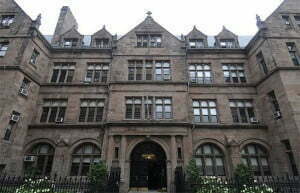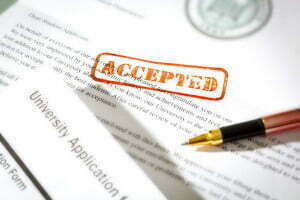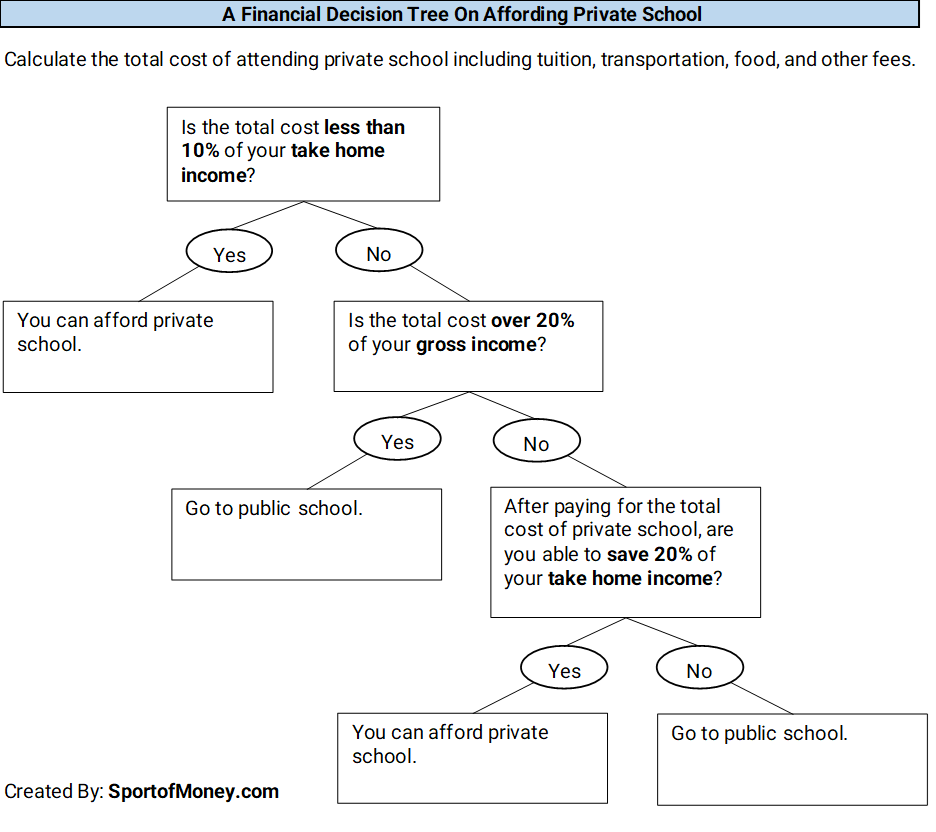As a New York City parent, there are a few great debates I’ve had with my wife.
First to come to mind: should we stay in New York City or move to the suburb?
We opted to stay in Manhattan. Moving to the suburb was never a truly serious consideration – although we still debate this from time to time.
Then came the next great debate: public school or private school? This one is more challenging.
It might be a straightforward answer for some, but it isn’t a straightforward answer for us.
Maybe that is why our kids have tried both public school and private school.
Unsurprisingly, there are many differences between public and private schools.
There are advantages to going to private school over public school. And, there are also advantages to going to public school over private school based on our experiences.
It isn’t a one size fits all answer.
If you are also having a great debate with your spouse over public school versus private school, I hope to be able to provide you with more information and present you with the advantages of going to each.
The Advantages Of Going To Public School
Advantage #1: Tuition Is Free
According to Private School Review, the average private school tuition in New York is $19,761 per year for the 2022-2023 school year.
The average tuition increases as students progress from preschool to elementary school to high school.
The average private preschool tuition in New York is $15,600. Then it goes to $19,879 in elementary school, and finally $25,336 at high school.
That isn’t so bad you might think.
Well, the top private schools in New York City charge close to $60,000 per year.
Check out the tuition of 3 of the top private schools in NYC.

The tuition doesn’t cover all the expenses associated with attending private school.
There is still a cost for lunch, field trips, and transportation.
How about when the school fundraising team comes calling? Time to open up that wallet.
With a public school education, you don’t have to worry about all those exorbitant fees. Although on occasion, you might be asked to donate to the Parent Teacher Association (PTA).
That is a huge saving!
Think about how much faster you can be financially free by saving $60,000+ per kid per year by going to public school.
Tuition is the number one consideration of why parents don’t send their kids to private schools.
Are you able to save at least 20% of your income after paying for private school? I think this is a good rule of thumb to see if you can comfortably afford private school.
If you can’t save 20% of your income after paying for private school, then go the public school route unless you feel without a doubt there is a marked positive difference in attending private school.
Advantage #2: Public School Is Closer In Proximity
New York City’s public school system uses a school zoning system.
A child is assigned to a school within a zone that is based on the home address.
That means the school is closer to home, especially during the elementary school years.
With remote work and stay-at-home parents, isn’t it valuable to be able to drop your kids off in the morning and pick them up in the afternoon without having to commute for 15+ minutes?
It is easier to attend school events such as recitals, Halloween celebrations, and in-person parent/teacher conferences.
Also, it is easier to chat with other parents without feeling the need to rush out given everyone’s proximity to the school.
Advantage #3: Other Kids Live Nearby

Because of the school zoning system, students in a given public school class live close to each other.
Unlike our experience with private school students, where the students travel from far and wide to attend the private school.
Even in private preschool schools (kids ranging from age 2 to 6), we noticed parents\caregiver travel by car to get to the school.
Students living close to each other have many benefits.
First off, it is easier to set up playdates if the kids live a block or two away.
Additionally, kids can develop relationships with each other quicker given they see each other a lot in the neighborhood going to the same parks, restaurants, and stores.
Other parents can also help with pick-up or drop-off if necessary.
Lastly, it is easier to attend birthday celebrations given parents usually plan parties in venues located in their own neighborhood.
Advantage #4: There Are No Politics With Getting Into A Public School
It is daunting to go through the New York City private school application process.
Even at the private preschool level (kids ranging between age 2 to age 6), it can feel similar to going through a college application process.
I know because I went through an application process for a private preschool school. My wife did most of the heavy lifting here.
The application itself asked for background information about the applicant, parents, and family.
The process included completing a few essay questions. Those essay questions included how my 2-year-old handles new challenges.
There was also the parent interview portion when my wife and I met with the admissions officer. My kid went through a playdate with other potential classmates to see how well they get along.
We even obtained a reference letter to include with the application.
The admissions process is very similar to applying for college.
As such, there is always politics involved and subjective assessment from the admissions officer.
At most select public high schools in New York City, admission is based on the result of an exam that is standardized and administered consistently across the board. If you score well enough; you gain admission into the school.
There are no politics involved.
Even at select public schools, the admissions process doesn’t involve the level of scrutiny of private schools. There is no background application to complete, essays to write, interviews with parents, and reference letters to submit.
Advantage #5: The Community Is More Representative Of America Economically
Based on my own experience, private schools want diversity in their student body. Typically, those diversity metrics are focused on race and gender.
I believe private schools also aim to bring some socioeconomic diversity to their student body as well. But when tuition costs $60,000 per year, there are only so many financial aid students the school’s endowment can support.
Most of the student body will be made up of kids from very privileged backgrounds with a privileged upbringing.
I remember attending a tour during a private school open house early in the school year.
In one of the classes, the teacher asked the students what they did over the summer. One student mentioned he spent some time at their vacation home in Tucks and Caicos. Another mentioned spending some time on a boat.
This will undoubtedly be less representative of the typical American experience.
Public school students in a good zoned public school tend to resemble more closely the economic cross-section of America.
Advantage #6: There Is Moderation On The Progressive Ideology In Public Schools
I find that there is more moderation to the progressive culture and rhetoric in public schools than in a lot of private schools.
This can be a benefit to attending public school or a strike depending on your social view.
Even in a progressive city like New York, there are too many voices and bureaucracy involved in moving a curriculum to too much of an extreme on one side.
I think there are significantly fewer checks in place over private school administrators. This can result in the private school moving towards an extreme side.
At times, it feels like different private schools are in an arms race to outdo each other in pushing the progressive boundaries more left.
Therefore, I find that a lot of private schools tend to be extremely progressive ideologically.
I favor more of a balance.
Advantage #7: Other Financial Benefits
In addition to saving on tuition, there can be other financial benefits to attending a public school.
Private school students have to pay for their meals separately. Breakfast and lunch are free for all NYC public school students. That might add up to over $2,000 in annual savings per kid.
School materials are free such as textbooks in public schools. Private school parents might have to pay for their kids’ textbooks, similar to college.
Transportation can be another cost to consider when attending a private school. Signing up for the school bus to transport their kid to the private school can set the parents back $6,000 to $7,000 per kid per year.
There can be other ancillary financial benefits available to public school students such as free\subsidized at-home internet offered to students under the Affordable Connectivity Program.
The Advantages Of Going To Private School
Now that you have read through the advantages of attending a public school, let’s go over the advantages of going to a private school.
Advantage #1: Private Schools Have Better Resources

It shouldn’t be surprising that private schools have better resources.
After all, the heavy tuition has to go somewhere.
Private schools have more teachers and faculty members on a per-student basis. That means the class sizes are smaller and more attention can be paid to each student.
Let’s take a look at the student-teacher ratio for the top-rated public high school in New York City compared to the top-rated private high school.
Bronx High School of Science is the number 1 ranked New York public high school according to Niche.com. The student-teacher ratio for that school is 21:1.
Trinity School is the top-ranked private high school in New York City. The student-teacher ratio is 6:1.
That is over 3 times the number of teachers for each student. When a student has 3 times the help, it is not hard to achieve outperformance.
Based on the private school tours I have been on; private schools also have better technology available and are more state-of-the-art.
When parents are paying an average of $20,000 per year for a private school, they better get more robust resources.
Advantage #2: Private School Can Feel More Intimate
Private schools have smaller class sizes. A smaller class size is the result of having a lower student-teacher ratio.
The typical class size in the private school attended by my child is 13 students. This number compares favorably to the typical class size of around 30 during the public school years.
A smaller class size means the teacher can spend more time per student.
Additionally, the class can feel more intimate. The student can feel heard and seen.
It is easier to establish relationships among classmates in a smaller group.
In addition to more teachers on a per-student basis, private schools have more faculty members on a per-student basis.
With fewer students for each faculty member to handle, problems can be identified and resolved more quickly in a private school.
Advantage #3: You Can Select A Private School That Focuses On What Is Important To You and Your Child
Do you or your child value sports? What about music?
How about being immersed in a STEM-oriented school? Or be highly involved in the arts?
What about attending a school frequented by international students?
I find that there are more choices going the private school route than public school in terms of what you and your child value in education and well-roundedness.
After all, there is a regimented curriculum that public schools need to follow.
Private schools have a freer rein on what they can offer.
Unsurprisingly, when you pay for something, you have more choices.

Advantage #4: There Is A Minimum Acceptance Standard You Can Expect At A Private School
There are many great public schools in New York City. Just because a school is free doesn’t mean the school can’t be good.
My kids happen to be zoned to a great NYC public elementary school.
The school zoning system is based on the student’s home address. Anyone living within a particular neighborhood or block located within a zone is automatically offered a spot in the public school for that zone.
There are no additional requirements in order to attend that school.
This is unlike a private school. A private school can make the admissions process as lax as the school prefers or as rigorous as the school prefers.
But regardless of the selectiveness, there is an admissions process. That means if your child attends that school, you know there is a minimum standard met by all the students who attend that school as well.
Advantage #5: Private Schools Offer More Touch Points And Check-Ins
Attending private school is similar to attending a high-end resort. Not only are you paying for the amenities, but you are also paying for the service.
Whereas, public school is similar to a no-frills hotel.
There are just a lot more touchpoints and check-ins in a private school.
Take my kid’s private school for instance.
My kid has access to teachers during student hours on a daily basis. Teachers are required to host student hours and make themselves available to students either before classes start or at the end of school.
Additionally, teachers are required to host parent meetings as well many times during the month. That way, if I want, I can check in on how my kid is doing numerous times per month if desired.
That is great access to the teachers for me and my kid.
I’ve also had one on one check-ins with the Dean of Student Affairs and the Dean of Students.
As great as the zoned school is in my neighborhood, such frequent access to teachers and faculty is not available.
Advantage #6: Private Schools Can Help With Ego Boost
In certain social or job circles, it is expected that your child attends private school.
There is an expectation that as a big law partner or an investment banking managing director, your child attends private school. If everyone else you know is sending their kids to private school, the peer pressure is on.
If a big law partner’s kid attends public school instead of private, it might immediately give off the impression to colleagues and clients that the person is struggling financially or, maybe even worse, the person is cheap.
It is an ego boost to be able to say your kid attends a private school. If you can afford the $60,000 per year tuition, you must be doing well financially.
Conversely, if you attend public school, the impression given off is that you are priced out of private school. This might not be true, but that is the perception held by many well-to-do parents.
Advantage #7: Build Relationship With the Offspring Of Captains Of Industries
The parents of the students who attend some of the top-notch private schools in New York City are financially well off. After all, they can pay close to $60,000 to send their kid to a private school.
Now, imagine 3 kids in a private school. That comes out close to $180,000 per year in tuition payments alone.
In addition to being wealthy, some of the parents in the top-ranked private schools are also captains of industries.
They might be C-Suite executives in Fortune 500 companies. They might run a large hedge fund or are private equity titans.
The students might be the offspring of Oscar winners or grandchildren of former U.S. presidents.
It can be beneficial for your kid to be able to build a long-lasting relationship with an offspring of very successful parents. Maybe that level of success can rub off on your kid.
Advantage #8: Robust Exmission Process

Top-ranked private schools offer a robust and successful exmission process.
The best New York City private high schools have some of the best acceptance rates into Ivy League colleges.
Trinity students have a 41% acceptance rate into Ivy League universities. Horace Mann has a 36% Ivy League acceptance rate. Dalton has a 31% acceptance rate.
The top private schools in New York City routinely have over a 25% Ivy League acceptance rate.
That speaks volume to the robustness of the exmission process in those schools.
They are a known quantity to the best colleges out there. They have good relationships with many great college admissions officers.
Some of the private schools were established hundreds of years ago.
Their stellar reputation has been forged over centuries.
Private schools dedicate more resources to their exmission process.
It doesn’t matter if it is a preschool graduate applying to elementary school, an elementary school student moving to middle school, or a high schooler applying to college, private schools care about where their students end up.
After all, the ability to advertise that their students ended up in other great schools is a huge marketing point for private schools.
My Decision Tree On Going Public Or Private
When my wife and I were debating over public vs private school, we took into consideration the advantages listed above.
Ultimately, our decision centered around two questions:
- Can we comfortably afford to send our kids to private school?
- What is the academic gap between public and private schools and is it worth the price differential?

I believe if the total annual spend on private school education is less than 10% of your take-home pay, then you can comfortably afford private school.
Most financial advisors agree that people should not spend more than 28 percent of their gross monthly income on housing expenses. On the priority of needs, I believe shelter comes before education.
Therefore, if tuition is over 28 percent of your gross pay, then you cannot afford to send your kids to private school. To be more conservative, I would limit private school expenses to 20% of gross pay at max.
Additionally, if you are not able to save 20% after paying for a private school, then I would not send the kids to private school.
Even if you can afford private school, then you need to determine if the benefits are worth it. After all, the main purpose of school is for education.
Is the academic gap between public school and private school large enough to make it worth paying the private school tuition? Is the value of a private school education worth the incremental cost?
Can the private school tuition money be better used in another way to help supplement public school education?
For instance, can a private tutor be hired 3 times a week to help your child with homework? That might end up still more cost-effective than attending a private school with a better academic result as well.
Conclusion
The public school vs. private school debate isn’t a one-sided affair.
There are many advantages to attending public school. And there are many other advantages to attending private school as well.
Ultimately, you have to find the right fit at the right price for you and your kid.
To The Audience: Do your kids go to private school or public school? How did you decide on where to send the kids? What are some of your key considerations?
Other Posts That Might Interest You
College Should Only Be A Financial Decision – Don’t Get Crippled Under Student Debt For Nothing
Average Income In New York City: What Salary Puts You In The Top 50%, Top 10%, And Top 1%
Here’s What You Need To Be Upper Middle Class And Upper Class In NYC – It’s A Lot
A Million Dollar Income – A Detailed Analysis Of The Household Budget

Many people work hard to better their physical and mental health. What about their financial health?
I started this blog back in 2019 to help people better their financial health as well.
My financial journey began with tens of thousands in student loan debt. Over the span of 20 years, I am close to achieving financial independence.
I truly believe anyone can get to strong financial health. Hopefully, this blog can help you on your financial journey to greater wealth and financial independence.
You can read more about me here.
Thank you for visiting. Come again soon!
